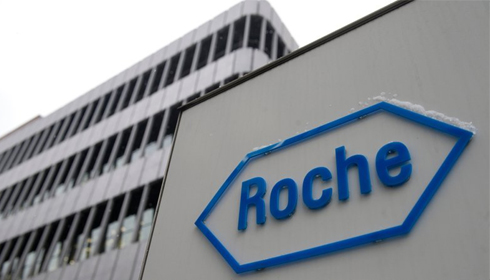
Roche's PiaSky Receives EU Approval as First Monthly Subcutaneous Treatment for PNH
The European Commission has authorised Roche's crovalimab, marketed as PiaSky as the first monthly subcutaneous treatment for paroxysmal nocturnal haemoglobinuria (PNH), a rare, life-threatening blood disorder characterized by the destruction of red blood cells by the body’s immune system. This destruction occurs due to a defect in the red blood cell membrane, which makes cells more susceptible to damage from the complement system—a part of the innate immune system. in Europe. This unique, self-administered treatment method aims to significantly reduce the treatment burden for PNH patients and their carers. PiaSky's approval represents a substantial advancement in treating this uncommon and life-threatening blood condition.
PNH is a syndrome in which the complement system, a component of the innate immune system, destroys red blood cells, resulting in symptoms such as anaemia, exhaustion, blood clots, and possibly kidney damage. The current standard of care for PNH is repeated intravenous infusions of C5 inhibitors, which can be time-consuming and disruptive to patients' lifestyles.
Professor Alexander Röth, M.D., Head of Classical Haematology and Haemostasis at the West German Cancer Centre, University Hospital Essen, Germany, discussed PiaSky's potential influence on patients' lives. "Life-long, frequent intravenous infusions and time-consuming clinic visits often burden people with PNH, causing their lives, along with those of their carers and families, to revolve around the demands of their treatment," he informed me. "More flexible treatment options, such as PiaSky, which is just as effective but less frequent and can be given more quickly at home, are essential to give people with PNH greater control over their treatment and more independence."
PiaSky's approval is based on the Phase III COMMODORE 2 research, which found that monthly subcutaneous administration of PiaSky was non-inferior to intravenous administration of eculizumab every two weeks, the current standard of therapy. The trial found that PiaSky was well-tolerated and offered disease control comparable to eculizumab, with a similar incidence of side effects.
Levi Garraway, M.D., Ph.D., Roche's Chief Medical Officer and Head of Global Product Development, emphasised the company's commitment to developing PNH therapy. "The PiaSky approval brings a new option to the PNH treatment landscape, combining the disease control achievable through C5 inhibition with a cutting-edge recycling technology that enables monthly subcutaneous administration," he told journalists. "We are pleased to bring this new treatment to people with PNH in Europe, with the hope that it may lessen the treatment burden faced by many living with this condition."
PiaSky employs a novel recycling technique that allows the medication to bind and block the C5 protein several times, allowing it to act longer in the body with a tiny amount of medicine. This method allows for monthly subcutaneous delivery, making treatment more comfortable and adaptable for patients.
Along with the COMMODORE 2 study, the approval was based on the COMMODORE 1 and COMMODORE 3 studies, which looked at those patients switching from other C5 inhibitors and patients new to C5 inhibitor treatment. Several countries, including the United States and Japan, have approved PiaSky and are testing it in a large clinical development program for a variety of complement-mediated disorders.